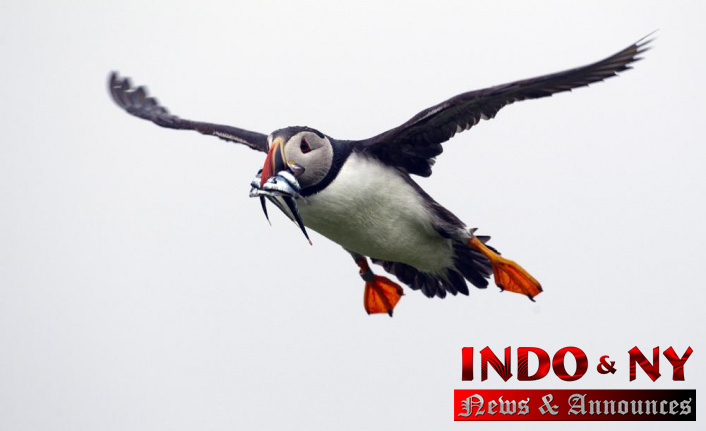Puffins, seabirds with bright beaks, nest on four small islands off Maine's coast. The state has approximately 1,500 breeding pairs. They are dependent on fish like herring and sandlance to provide food for their young.
Don Lyons, director for conservation science at the National Audubon Society’s Seabird Institute, Bremen, Maine, stated that only about 25% of the birds were able this summer to raise chicks. He said that about two-thirds (or more) of the birds are successful in a normal year.
Lyons stated that the puffin colonies have only had one or two less productive year in the forty-year period since Maine restored their populations. He said that the birds suffered from a weak year due to the lack of fish for survival, which was caused by the warm ocean temperatures.
Lyons stated that there were less fish for puffins and the ones they did catch were not suitable for chicks. It's a serious warning this year.
The Gulf of Maine is home to the islands where puffins nest. This body of water is warming at a rate faster than most oceans. Lyons stated that although there has been no evidence of mortality in adult puffins so far, the population could be affected if they have trouble raising their chicks.
The disappointing news comes after recent positive signs despite difficult environmental conditions. In recent years, the population of these birds, which are listed as endangered in Maine, has been stable.
In 2019, the birds enjoyed one of their most productive years for breeding pairs. Stephen Kress, a scientist who has been studying the birds for decades, stated at the time that the Gulf of Maine experienced a cool year which led to an abundance of food.
The puffins are Atlantic puffins, which also live in Canada and on the other side. They are listed as "vulnerable" internationally by the International Union for Conservation of Nature.












